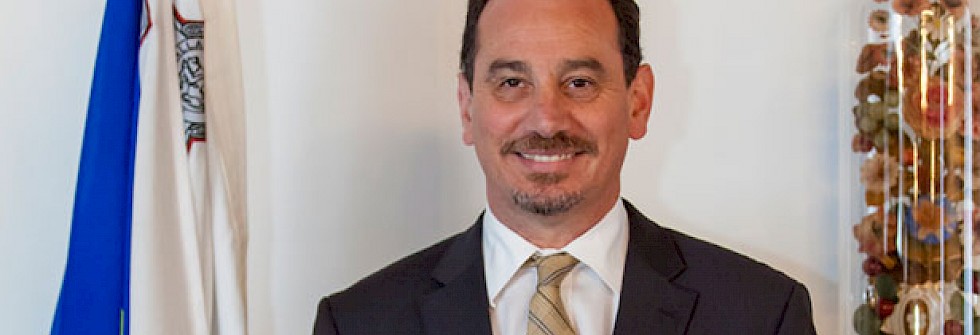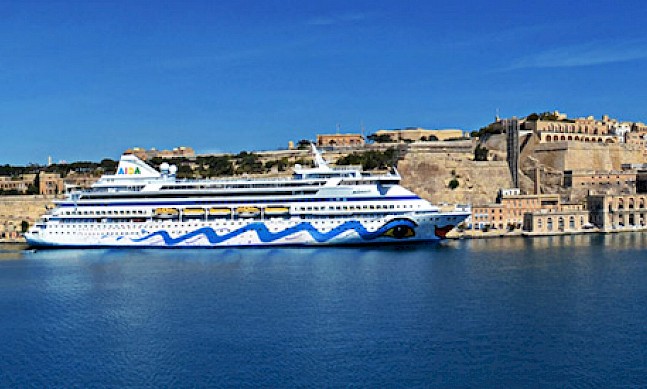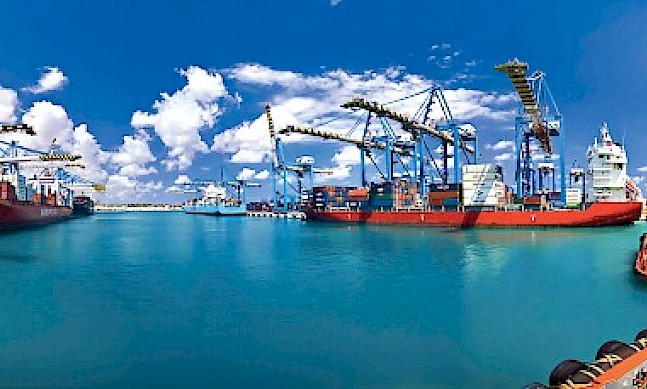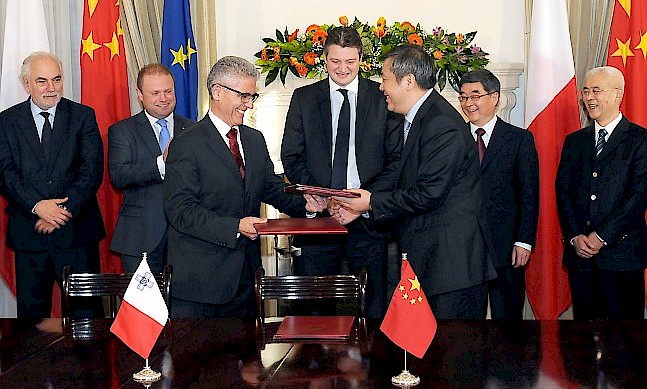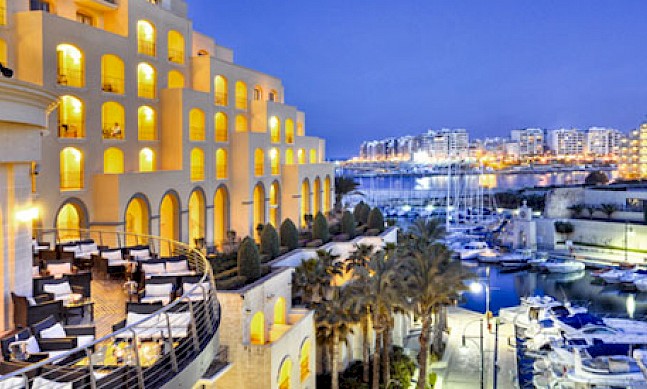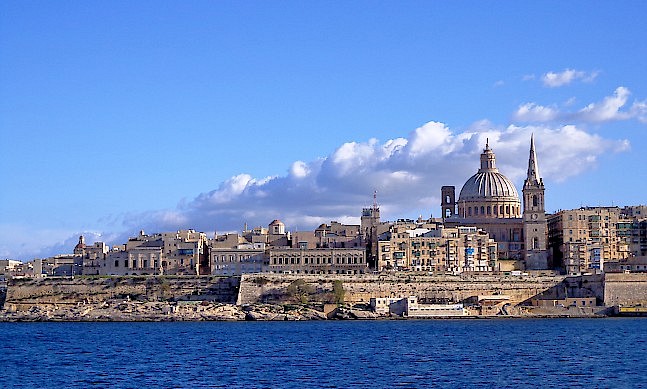Godfrey Farrugia has been minister for health since 2013, and works to protect and promote the health of the people of Malta. He spoke to The Report Company about the importance of public health in his country, what is being done to increase foreign investment into the sector, and where the opportunities lie for collaboration with China in health.
The Report Company: How would you appraise the current situation of the health sector?
Godfrey Farrugia: Malta enjoys a centuries-old tradition in the provision of high quality healthcare services. The Maltese are justifiably proud of their healthcare system which is the fruit of the hard work and investment of successive generations. This, of course, does not mean there aren’t important challenges to be addressed. In the twelve months since I have been entrusted with the ministerial responsibility for health, I have overseen a wide-ranging review of the whole healthcare system, consulted widely with all the stakeholders, and I am now actively engaged in finalising and implementing the much-needed reforms to the system that will ensure both its sustainability and its ability to continue improving the accessibility and level of healthcare provided for all.
Not unlike other countries with advanced economies and very good healthcare systems, Malta is experiencing a large increase in life expectancy coupled with a fall in fertility rates. The ageing of the population increases chronic ill health, the level of dependency and the cost of medical treatment. Measures are being taken to strengthen further our primary healthcare system and community-based healthcare services in an attempt to ensure that citizens will remain living in the community for as long as possible, thereby relieving pressure from the hospitals and the residential homes for the elderly. A robust primary healthcare system, the provision of comprehensive community-based healthcare services, together with improvements in rehabilitation services, are essential for the sustainability of the whole healthcare system.
It is important to note that Malta enjoys a public/private mix in the provision of healthcare at all three levels. In fact, the majority of primary healthcare in Malta is provided by the private sector while, there are several clinics and a private hospital active in the provision of secondary healthcare. Private operators also provide rehabilitation services and residential homes for the elderly which compliment those provided by the public sector.
The government actively supports private investment in the health sector for the provision of healthcare services both to Maltese citizens as well as to patients from abroad who travel to Malta purposely to receive medical treatment. Substantial opportunities for further investment by the private sector exist especially in medical tourism, where Malta is very well positioned to attract some of the large number of patients in North Africa and the Middle East seeking treatment abroad, as well as in the provision of rehabilitation services and residential homes for the elderly to the local population on a public private partnership basis.
“Substantial opportunities for further investment by the private sector exist especially in medical tourism, where Malta is very well positioned to attract some of the large number of patients.”Tweet This
TRC: What kind of collaborations are you looking at with other countries?
GF: Malta has entered into a number of bilateral health agreements in recent years. My ministry is currently reviewing these existing bilateral agreements to see how they could be strengthened and better implemented in today’s fast changing world. My ministry is also considering negotiating health agreements with a number of other countries with which we do not have any formal framework agreements for co-operation. One country I am interested in and with which we have already had initial discussions is Turkey.
Our priorities in this sector are influenced both by our geographic position and by our assessment of which countries such co-operation would be most mutually beneficial to pursue. Our main attention at the moment in on countries in Europe; North Africa; the Middle East and the Gulf region; and China, the US, Canada and Australia. In fact, one of our long-standing agreements is with China and we are looking forward to enhancing our co-operation with China in the health sector.
TRC: What can you tell us about Malta’s life sciences park?
GF: The life sciences park is a research and development park. It’s a €24 million project that centres within the fields of life sciences and biotechnology. It is co-financed by the European Union and will offer facilities both in regards to laboratories and specialised units. It will also offer shared facilities, such as office space and other meeting rooms, lecture rooms, and ancillary services.
What is attractive about it is the fact that it is strategically located within a health campus. This campus has the University of Malta within walking distance, it has an acute and specialised hospital and by the end of this year we will be opening an oncology centre there.
Truly we have a health village incorporating a cluster with research and development, training and care all within the same area. This is bound to attract companies from different countries and I’m confident that this life science park, which is under the auspices of Malta Enterprise, will in fact give the necessary international platform whereby we improve when it comes to research.
Malta is also an attractive location for the carrying out of clinical trials due to its small stable population and a more streamlined regulatory structure with one medicines authority and one ethics board. Being an EU member adds to Malta’s attractiveness in the case of multinational clinical trials for companies from outside the EU who are planning to enter the EU market.
TRC: How do you foresee collaboration with China in the health sector?
GF: Traditional Chinese medicines are the essence of Chinese culture. In Malta these services are available in our public health system through the Mediterranean Regional Centre for Traditional Chinese Medicine. A significant number of patients are already benefitting from the natural therapies, holistic and medical philosophy offered by the centre. With the practice of Chinese traditional medicine becoming more integrated in our mainstream national health system, we expect stronger interest from local healthcare professionals in pursuing training in this field. We intend to send a number of such healthcare professionals to China to deepen their knowledge of the subject and gain the necessary work experience. Ultimately, our aim is to have traditional Chinese medicine taught at the University of Malta. I’m sure that, with the right collaboration between the health sector and the education sector in Malta and China, we could promote Malta as a centre of excellence in traditional Chinese medicine not only for the Maltese but for other EU countries as well.
TRC: Malta plans to open a medical school. What progress has been made so far?
GF: The ministry for health, the ministry of education and Malta Enterprise have approached a number of reputable UK universities with the hope of creating a public-private partnership to set up a medical school in Malta. Such courses will attract not only foreign students coming from Britain but will also attract students coming from North Africa, the Gulf states and further afield.
TRC: What is being done to attract further investment into the healthcare sector and what can be done to make it more attractive?
GF: Apart from the considerable investments being done in healthcare in Malta by the public sector, the government is also actively encouraging the private sector to look at healthcare as an excellent investment opportunity. I am noticing a strong increase in interest from both local as well as foreign investors, who I feel are responding positively to the government’s approach in this area. One of the first initiatives I took shortly after taking office was to establish a business friendly desk at the ministry for health to assist potential investors in the health sector. My ministry has also embarked on a process of reducing the bureaucratic burden on the private sector operating in this sector. My ministry is promoting public-private partnerships in healthcare and this is an area which I believe will continue to grow in the coming years. Another area which my ministry is actively encouraging is the growth of medical tourism to Malta.
“With the practice of Chinese traditional medicine becoming more integrated in our mainstream national health system, we expect stronger interest from local healthcare professionals in pursuing training in this field.”Tweet This
TRC: How would you like Malta to be perceived abroad, especially by the Asian markets?
GF: I would like Malta to be perceived as a promoter of Chinese traditional medicine and as a promoter of Chinese identity and culture. I would like to see the University of Malta promoting traditional Chinese medicine by offering courses on the subject and I want to try my best together with the minister of education to ensure that this happens. Our government is committed to strengthening the cooperation between our two countries. We are also working for Malta to serve as a platform for China to establish closer links with our European partners.
Presently we are commemorating the 20th anniversary of the opening of the Mediterranean Regional Centre for Traditional Chinese Medicine in Malta. I would say that this venture, which was a venture between the ministry for health in Malta and the ministry of health in China, should be strengthened.
TRC: What are your plans and objectives for the future?
GF: The key achievement I am aiming for is the dovetailing of the 2014-2020 health systems report with our budgetary forecasts, because that way we are bound to have better health outcomes and better costs savings. We want to do more with the resources that we have available. One big challenge due to our ageing population is that each year our national health budget has to be increased by about five percent. In addition, there is the increased demand for new services that one has to cater for in our national health service as the years go by. All entities in Malta, especially when it comes to the public health sector, must have more efficient corporate governance both at a macro and a micro level. This is the way forward. After all, sustainability in healthcare is not only a challenge for Malta. It’s a challenge for many countries. This is why I always emphasise that capitalising on synergies between public and private healthcare is the way forward to ensure that health will remain a contributor to economic prosperity.
I believe we do have good health outcomes. There is more that we can achieve and we are on the right path in achieving what we need to. Not only did we change our legal framework whereby we now have a modernised healthcare system; we also know how much each and every service costs. With the introduction of the national health system strategic report and the public consultation that is ongoing by my ministry, I am confident that not only will the local population benefit from improved services but that we could offer the best conditions to attract private investment.
